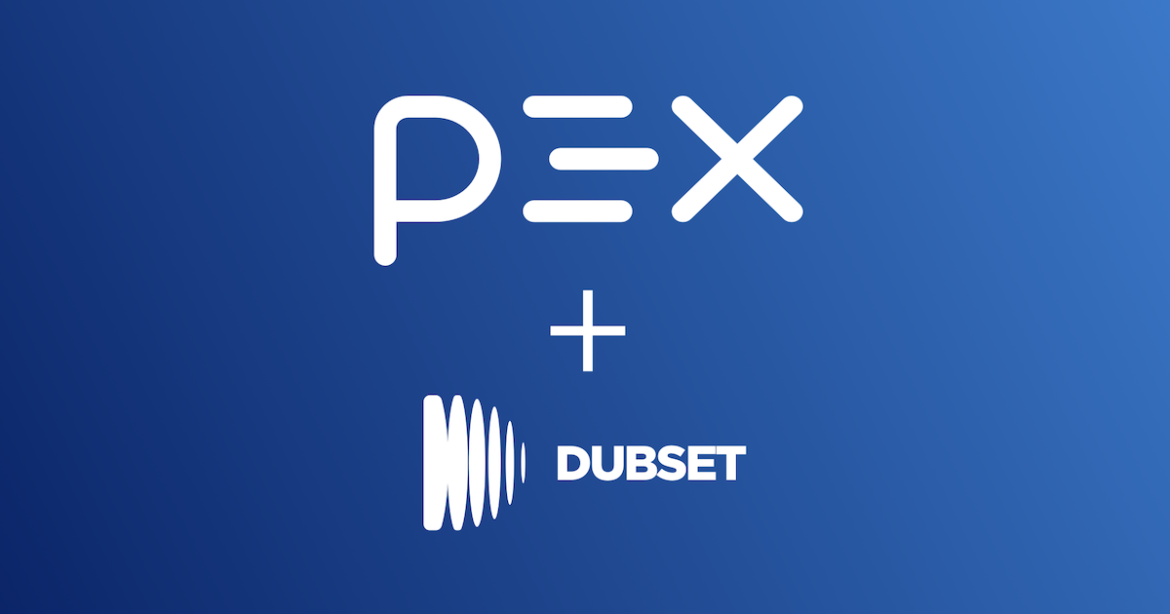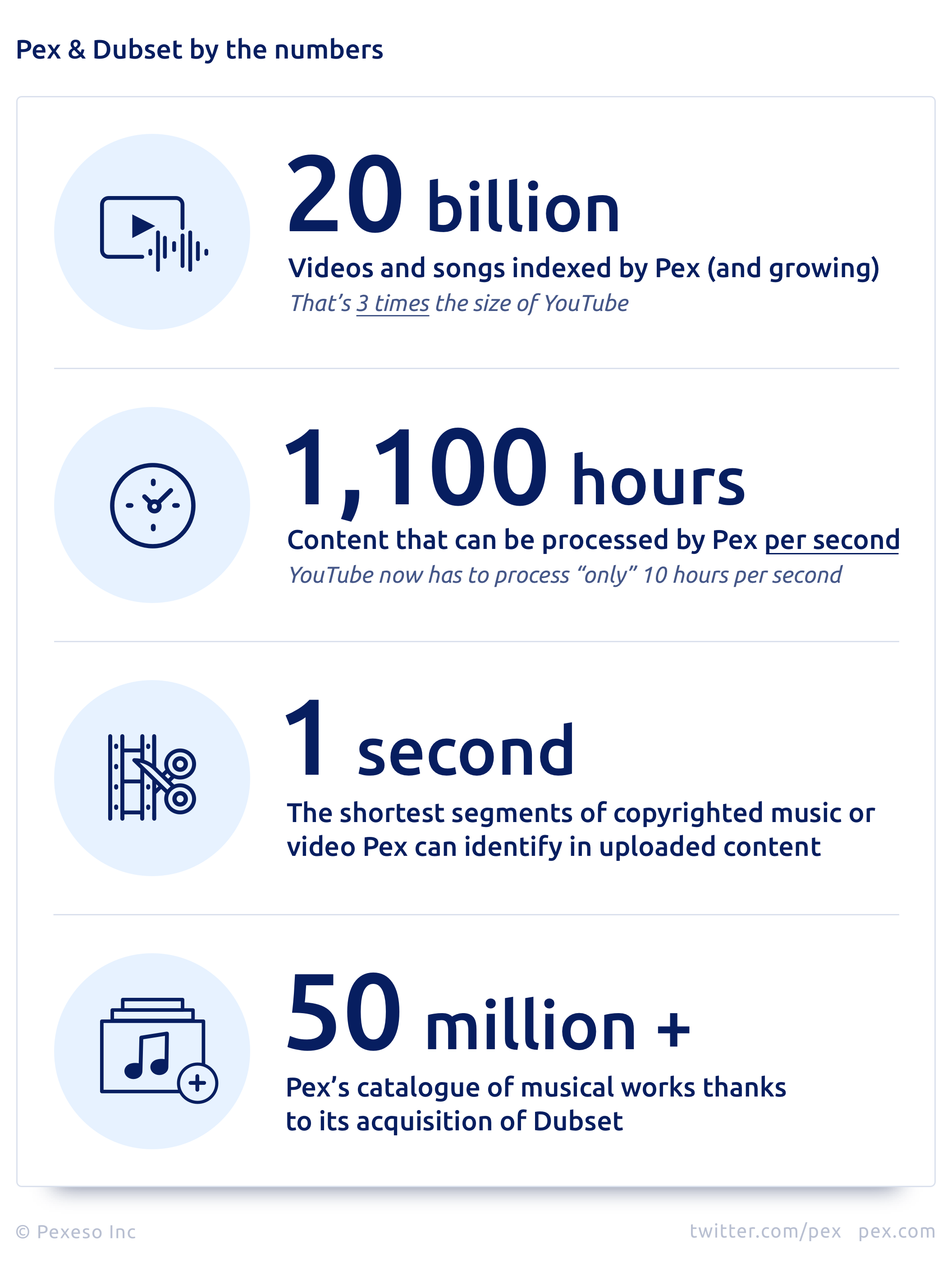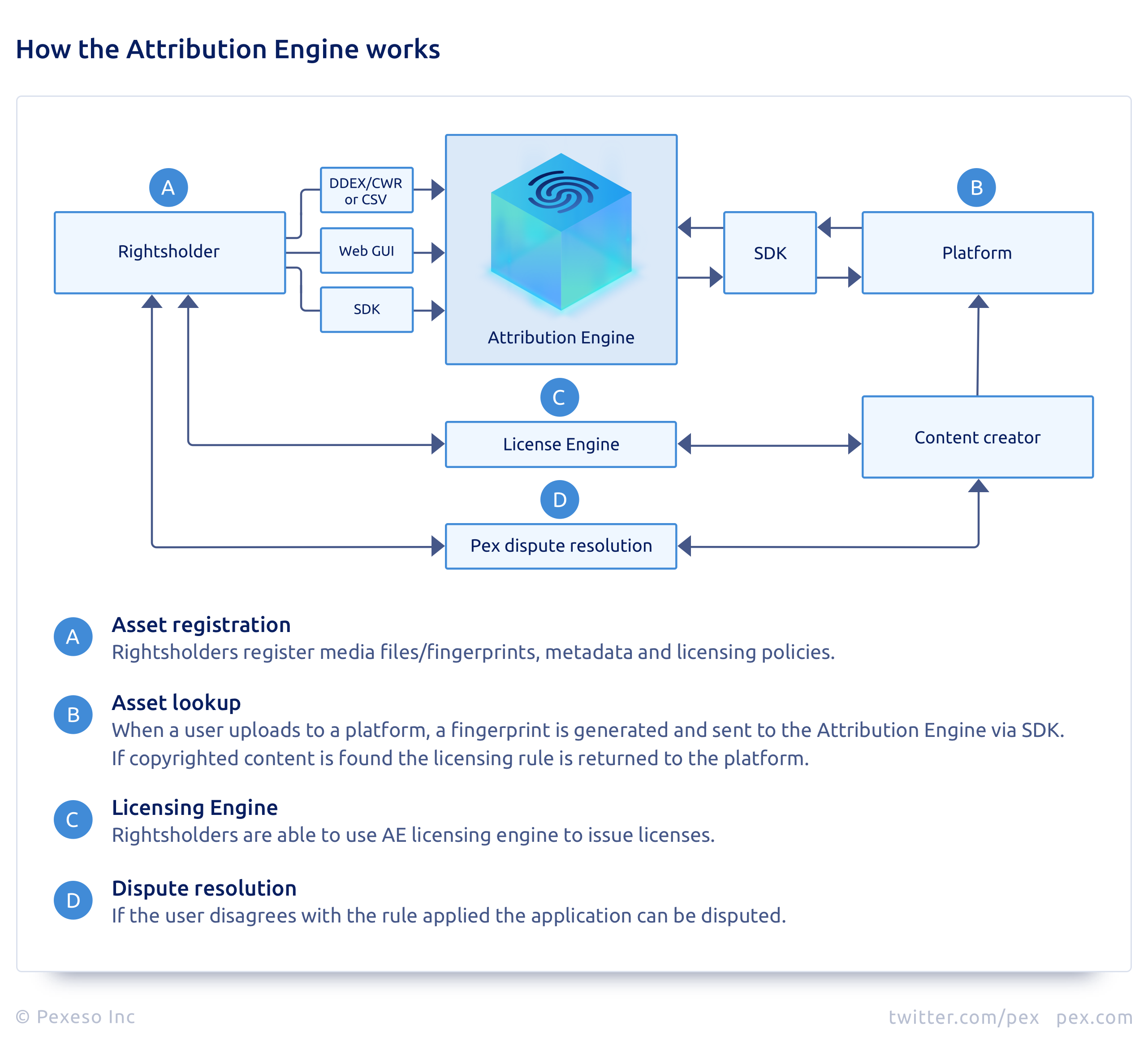Pex hit the headlines earlier this month when they announced their $25m+ acquisition of Dubset. We sat down with Bob Barbiere, formerly of Dubset, now SVP Digital Rights at Pex, to discuss the deal and why it has potentially huge implications for music rights holders.
Can you talk us through Dubset’s history and how this acquisition came about?
Dubset’s vision was to take music content that lived in relative unattributed obscurity on UGC sites and help rights holders get paid through a combination of technology and licensing solutions. A typical DJ mix, for example, has on average 23 songs and over one hundred rights holders, but often comes with very little information. Dubset created technologies to identify each piece of content and the rights holders associated, and ensured that those rights holders had a licensing foundation in place so that they could receive compensation and create rules about how that content could be used. And then ultimately once it was distributed, they had full transparency to all of the data and revenue around the consumption of that content.

Bob Barbiere, SVP of Digital Rights at Pex
That was no small task. It took us from 2010 through to 2019 to start delivering in volume to the major music services. Then the EU Copyright directive got approved and while on the surface it looked tremendous for Dubset because we had been ahead of our time in developing a solution for those requirements, we realized that platforms were either going to have to develop those same technologies themselves, or other companies were going to approach the market with a broader solution. Part of our due diligence pointed to the fact that Pex looked ahead of other companies in bringing a copyright compliance solution to market.
“By combining forces we felt that we had an incredible technology solution with an embedded recording/composition database and music relationships.”
We realized that we would be competing with Pex sooner or later, so we had a few discussions with the company’s founder Rasty Turek. He had started working on a solution years before because he had a clear vision that in order for UGC to move to the next level, copyright use and licensing had to be fast, seamless and transparent. He had made strong gains in building the copyright solution, and at Dubset we had made great strides in the rights holder side of the business, having licensed over 50 million pieces of catalog representing over 5 million artists and composers and 1.2 million labels and publishers. By combining forces we felt that we had an incredible technology solution with an embedded recording/composition database and music relationships.

Can you explain what Pex does in more detail?
Over the last few years, Pex has continued to build their platform and surface data from UGC and social media sites. Every day they collect every piece of audio or video that’s uploaded, posted and shared on all of these sites. They literally have the entire history of audio/video across social media and UGC sites fully fingerprinted and indexed. So when a rights holder puts a reference file in (e.g. – the official music video of a song), Pex can immediately return the entire history of every instance where that audio or video has appeared on those sites, down to the second. The technology is accurate and fast, much more so than Content ID. Since content uploading is real time meaning it just happens, it needs to get distributed instantaneously, technology has got to be fast and it’s got to enable growth.
“We analyzed Ed Sheeran’s “Shape of You”, the most streamed song on Spotify, and we found that it had about 800% more streams across social platforms and UGC sites than it did on Spotify.”
Now that we’re part of Pex I’m blown away by how quickly the platform is able to return this information and the magnitude of it. For example, we analyzed Ed Sheeran’s “Shape of You”, the most streamed song on Spotify, and we found that it had about 800% more streams across social platforms and UGC sites than it did on Spotify. Imagine the eyes that opened when we shared that. Labels and publishers only have a couple of chapters of the book, they don’t know how few quite frankly, and now we’re giving them the rest of the story. Surfacing this information is going to have a significant impact on rights holders’ revenues and it also allows labels, publishers and artists to see exactly where, when, and how their content is performing.
“We typically find up to two to three times the amount of content that YouTube Content ID finds, which gives rights holders two to three times the opportunity to monetize their catalog.”
We also typically find up to two to three times the amount of content that YouTube Content ID finds, which gives rights holders two to three times the opportunity to monetize their catalog. That’s a great thing for them and a good thing for YouTube because more monetization is occurring. We’re also exposing that the efficacy of takedowns is actually very limited across these platforms because they are unable to identify all instances of the taken down track or composition without Pex data. So, part of the program that Pex is offering today is the ability to surface that information so that rights holders can make informed decisions based on it.
You’ve also announced your Attribution Engine for UGC platforms. How does that work?
In addition to the service that Pex offers to rights holders, we also have our new Attribution Engine solution for UGC and social media platforms. Those platforms can “plug in” and give content creators and rights holders access to this information. We’re now serving the three main stakeholders in the UGC marketplace: content creators (the uploaders), the platforms, and the rights holders. If all parties have equal access to the information, it ensures a much better functioning marketplace. When any one side has more access or information it creates an imbalance that can stress a marketplace or hold back its growth. Pex wants to bring that information to all of the parties. To me, an effective marketplace has to have transparency and trust in order to achieve its full potential.
How are you getting the word out about Pex and what’s your message to rights holders?
The first thing that we typically find is that people don’t know about Pex because they’ve been flying under the radar, limiting their platform use to a handful of large music and film rights holders as they scaled their technology and service. So, we are now actively speaking to all of the labels and publishers that we served at Dubset to make them aware of Pex, and we’re working closely with some of the largest rights holder and content creator associations. As you can expect we are fielding a lot of calls and a lot of inquiries, we’re trying to keep up with the demand and get out there to let people know that this data now exists and that it’s available to them, the better.
“Everyone knows social media is critical to success as an artist, composer, label or publisher, without true social/UGC data though they will operate blind to some extent. We want to help people establish much better flight plans.”
People need to come in with a really open mind around the actual data that we are able to surface, and what they can do with that data. This data hasn’t been available to them previously, and it’s just become routine behavior to make assumptions or to rely on partial data or assume that Content ID is finding 95% of the use of their catalog. This is so much larger and more important than people might assume. Everyone knows social media is critical to success as an artist, composer, label or publisher, without true social/UGC data though they will operate blind to some extent. We want to help people establish much better flight plans.
https://pex.com


